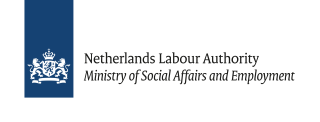Working at and around music festivals is often varied and challenging, but it also comes with risks. These risks include fall and collision hazards when setting up and dismantling the site, or hearing damage from loud music and noise. To prevent accidents and health damage, it is important for employers and organisers to comply with laws and regulations.
The Netherlands Labour Authority monitors compliance with these laws and regulations. This is how we make sure festivals are not only fun for audiences, but also safe for everyone working there.
Festival risks identified
In 2024, the Dutch Labour Authority visited music festivals, both during set-up and dismantling and during the festival days themselves. In the process, several health and safety hazards such as collision hazards and noise pollution were identified. We also detected violations of the Working Hours Act, the Minimum Wage Act and the Foreign Nationals (Employment) Act.
Music festival
The Netherlands Labour Authority conducts inspections of music festivals in 2025. During these inspections, the focus is on:
Health and safety (Dutch)
Collision hazard (Dutch)
Work at height (Dutch)
Noise in the workplace (Dutch)
The inspectors also check if employers and organisers comply with laws and regulations on fair work, such as the correct application of working hours (Dutch), wages and the use of foreign labour. In this way, the Dutch Labour Authority aims to contribute to healthy, safe and fair working conditions for everyone working on and around the festival site.
Shared responsibility
Fair, healthy and safe work starts with good preparation. It is important that all stakeholders - employers, organisers and performers - take their part in this seriously.
Risk inventory and evaluation and action plan at festivals
Employers are required by law to identify health and safety hazards. This starts with (preparing) a complete and up-to-date risk inventory and evaluation (RI&E). The RI&E is accompanied by an action plan containing measures to counter the risks as much as possible. These include measures against fall hazards (such as fencing or fall protection), clear agreements on traffic flows on the premises and wearing appropriate hearing protection. Employers and organisers must also ensure proper information, safe working conditions and workplace supervision.
We also expect employers and organisers to comply with laws and regulations when it comes to fair working. For example, through proper application of working hours and payment of at least the legal minimum hourly wage.
Occupational Hygiene Strategy
The Working Conditions Act prescribes that risks must be addressed as much as possible at the source. This is called the occupational hygiene strategy: first consider whether the work can be done differently so that the danger is eliminated.
A source-based approach could be, for example, prefabricating stage components on the ground so that they do not have to be built at height. Another example is designing the site in such a way that forklifts and workers on foot are completely separated, thereby making collisions impossible.
If that's not possible, technical or organizational measures must follow - such as guardrails to prevent falls, separated driving routes, or task rotation to limit exposure to loud music. Only when these solutions are truly not feasible should personal protective equipment be used, such as a (climbing) harness or hearing protection.
By always starting at the source, a well-considered and effective measure is taken to keep working at festivals safe.
Do it yourself
Are you, as an employer, complying with laws and regulations for fair, healthy and safe working conditions? With our self-inspection tools on zelfinspectie.nl (Dutch), you can check how your company is doing on a topic-by-topic basis.

